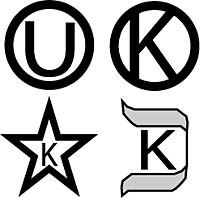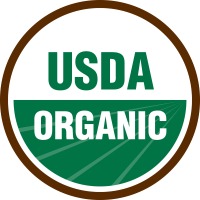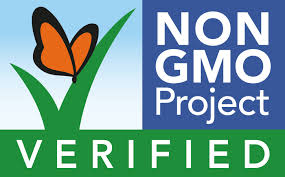What should you expect when it comes to the quality control of natural fats and oils used as ingredients in food manufacturing? There's a lot of different documents that you as a food manufacturer can ask for.
If you're wondering what's normal to expect from your bulk oil supplier in terms of quality assurance documentation, here's the list of the QA docs we most often get requests for.
The Most Popular Oil-Related Quality Documents
1. Spec Sheet
This information is a general standard of everything you should know about the oil. It's like a general introduction in a technical format.
The typical information on a spec sheet includes: standard limits of chemical characteristics, the type of oil, a description, how it's made, what it's best used for, what kind of packaging it comes in and more. It also sometimes includes all of the nutritional breakdown details, country of origin and allergens together on one sheet.
2. Certificate Of Analysis
This document provides the specific chemical information about the actual oil that you've received. It provides actual chemical test results that should be within the normal limits on the spec sheet (explained above). You should receive it with any physical order that you bring in, with information corresponding to the lot that you received.
3. Kosher Certificate

Most manufactured food products are now kosher certified, which means that all of theingredients need to also be kosher certified. There are a number of different organizations that offer this, and they all generally recognize eachothers' certifications. That means that your suppliers' Kosher certificates can come from any qualified organization.
There's also a "over and above" Kosher for Passover certification, for foods that are specially made to be eaten during the holiday.
4. Organic Certificate
 An organic certificate verifies that the oil that you are receiving is grown, produced, made and stored in a way that meets all organic guidelines.
An organic certificate verifies that the oil that you are receiving is grown, produced, made and stored in a way that meets all organic guidelines.
These steps (growing, producing, transporting, storing, packaging) are often done by different companies. You don't need to worry about that though -- if your supplier is organic certified, it means that they've had to produce and track the entire organic trail backwards towards the tree, to confirm that every lot of oil that enters their facility was grown and produced organically, every step of the way. If you get the organic certificate from your supplier, you're covered for every step along the way, and you don't need to ask for anything more.
When you're getting your organic certificate, it's important to receive it from the company that actually packed the oil. For example, if you're purchasing from a broker or a distributor, they didn't pack the oil. You'll want to get an organic certification from their manufacturer, the company that they bought it from.
On the flip side, if you're buying packed goods from a manufacturer and they can't provide their own organic certification from their facility (aka, they pass along their supplier's certificate from overseas) that won't probably satisfy your own organic certifier because they're breaking the packaging open as a non-certified company.
5. Non-GMO Project Verification Certificate
With the popularity of manufacturers getting their products Non-GMO Project Verified, it's quite common to expect that all of your ingredients that are high risk will need to be Non-GMO Project Verified as well.
 This Non-GMO Project Verified document will ensure that your supplier has gone through the documentation and audit process that ensures each specific lot of non-GMO ingredients are tested, tracked, and are processed through packaging lines and stored to ensure there will not be cross-contamination with GMO products.
This Non-GMO Project Verified document will ensure that your supplier has gone through the documentation and audit process that ensures each specific lot of non-GMO ingredients are tested, tracked, and are processed through packaging lines and stored to ensure there will not be cross-contamination with GMO products.
Of course, if the oil that you get is a low-risk ingredient (aka, if there isn't a similar type of oil that's been made using genetic modification, and therefore there's no risk of cross-contamination) a supplier statement will usually suffice -- even if you are submitting the paperwork for your own Non-GMO Project Verification.
The Most Popular Supplier-Related Quality Documents
6. 3rd Party Audit
A 3rd Party Audit is now standard for any supplier to document that they have been audited by an independent certifier to have good and safe food handling practices in place. There are lots of different auditing companies, so you can see a wide variation between certificates. However, you'll usually find two parts:
a) the primary certificate with audit score
b) the detailed audit report notes (only occasionally requested)
This is something that most manufacturing customers require from their suppliers, no matter what they are buying from them.
7. Your Supplier Questionnaire
The document unique to your company is now on the "most common" list! Of course, every manufacturer will have a slightly different QA questionnaire. However, these unique documents are so common now that they make it on to the most popular list.
Almost all manufacturers have similar questionnaires that ask the same questions and compile the same sort of information. So you're all on the right track -- together!
Other Quality Documents You May Want For Your Bulk Edible Oils
Aside from the list above, here's the other most common quality documents that you might want to receive. Many of your peers are already asking for these documents, so your supplier should easily be able to provide them.
8. Nutrition Statement (sometimes on spec)
9. Non-Allergens Statement (sometimes on spec)
10. Flow Process Diagram
11. Shelf Life Standards / Storage Recommendations (sometimes on spec)
12. SDS (used to be MSDS)
13. Lot Code Explanation
14. Letter Of Guarantee
15. Halal Statement
16. HACCP Plan or Certificate
17. GMP Plan (Good Manufacturing Practices)
18. Gluten Free Statement or Certificate
19. Non-GMO Statement [Supplier Generated]
20. Prop 65 Statement (For California)
21. Animal Testing Policy
22. Change Notification Statement
23. Cold Weather Instructions for Oils
24. FDA Food Facility Registration
25. GRAS Statement
26. Irradiation Statement
27. Emergency Contact List
28. Recall History
29. Pallet Layouts And Weights
30. Sewage Sludge Statement
31. Trace And Recall Procedure
32. Trans Fat Statement
33. Supplier Information Sheet
Other Components Of Quality Control
Of course, quality control isn't just made up of documents. However, these documents show the practices that each company has in place internally: the testing practices that they maintain, what processes they train their employees to follow, and what auditors confirm for them independently.
These documents are always a good place to start. Howver, the larger discussion of quality control requirements and testing is something that deserves it's own in-depth discussion as well.
Topics: Quality Control












